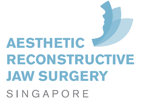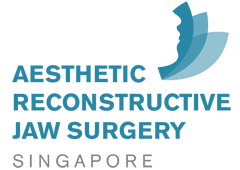Share this
What Are Common Complications With Jaw Surgery?
on April 5, 2014
 Singapore oral and maxillofacial surgeons perform orthognathic surgery, also commonly known as corrective jaw surgery, to treat problems caused by uneven jaw development or abnormal jaw positioning. Jaw surgery is considered a safe and effective procedure due to its low rates of serious complications. However, it is important that Singapore patients are aware that there are risks involved with the surgery, as is the case with any surgical procedure. Knowing the risks of the procedure, weighing them against its benefits and discussing your concerns with your Singapore oral surgeon is essential to making solid, well-informed decisions about your care.
Singapore oral and maxillofacial surgeons perform orthognathic surgery, also commonly known as corrective jaw surgery, to treat problems caused by uneven jaw development or abnormal jaw positioning. Jaw surgery is considered a safe and effective procedure due to its low rates of serious complications. However, it is important that Singapore patients are aware that there are risks involved with the surgery, as is the case with any surgical procedure. Knowing the risks of the procedure, weighing them against its benefits and discussing your concerns with your Singapore oral surgeon is essential to making solid, well-informed decisions about your care.
Among the most common conditions treated with jaw surgery are occlusion issues caused by uneven or misaligned jaws, such as severe overbite, underbite, cross bite or open bite. All of these conditions can cause functional problems, including poor biting and chewing efficiency, abnormal tooth wear, speech impediments and breathing difficulties, as well as the aesthetic issues, such as chin protrusion or recession, an inability to close the mouth naturally or unbalanced facial features. Correcting overbite or other jaw position and/or size via orthognathic surgery can resolve both functional and aesthetic issues caused by these conditions, improving a patient's quality-of-life.
While serious complications are fairly rare, there are some possible risks to be aware of if you're considering jaw surgery. Most common short-term complications of orthognathic surgery include:
- Temporary numbness or tingling, most commonly occurring at or near the chin, nose, lips, cheeks or tongue.
- Excessive bleeding.
- Infection at incision sites.
- Adverse reaction to anesthesia.
- Tooth damage.
- Nausea and vomiting.
Possible long-term complications of orthognathic surgery include:
- TMJ disorders.
- Permanent nerve damage, resulting in loss of sensation in areas that may include the chin, nose, lips, cheeks or tongue.
- Poor cosmetic outcome.
- Relapse of original jaw disorder.
Patients who undergo corrective jaw surgery can expect some uncomfortable issues immediately following their procedure, including swelling, light bleeding, bruising, pain and stiffness. These are not complications, but expected after effects of orthognathic surgery. Bleeding should resolve within 24 to 48 hours. Swelling and bruising should begin to decrease within 4 to 6 days. Pain and stiffness will gradually decrease as jawbones heal. Initial healing is usually complete in about six weeks, while complete healing generally takes 9 to 12 months. If these issues persist beyond those norms or you experience a marked increase in pain and swelling, it is important to call your Singapore oral surgeon to have these symptoms medically assessed.
Share this
- Jaw Surgery (93)
- Dental Implants Singapore (90)
- Orthognathic Surgery (48)
- Replacing Missing Teeth (26)
- Missing Teeth Options (23)
- Underbite (23)
- Bone Grafting (21)
- Costs (18)
- Facial Aesthetics (18)
- Aesthetics (17)
- dental implants (16)
- corrective jaw surgery (15)
- BOTOX (11)
- Dermal Fillers (11)
- Wisdom teeth (10)
- Fixed Implant Dentures (8)
- Loose Dentures Singapore (6)
- Medisave (6)
- sleep apnea (6)
- Braces (5)
- Dental Pain (5)
- Dentures in Singapore (5)
- Loose Teeth (5)
- Tooth Extraction (5)
- jaw deformities (5)
- bimax (4)
- bone graft (4)
- maxillomandibular advancement (4)
- all-on-4 (3)
- bimaxillary protrusion (3)
- chin implant (3)
- facial asymmetry (3)
- full mouth dental implants (3)
- genioplasty (3)
- immediate implant (3)
- removal of an integrated dental implant (3)
- third molars (3)
- wisdom tooth surgery (3)
- My Dentures Don't Fit (2)
- VME (2)
- bone graft healing (2)
- distraction osteogenesis (2)
- medical tourism (2)
- obstructive sleep apnea (2)
- orthodontics (2)
- plastic surgery (2)
- CT guided dental implants (1)
- Double jaw surgery (1)
- Invisalign (1)
- Periodontal Disease (1)
- Permanent Dentures Singapore (1)
- before and after photos (1)
- facial trauma (1)
- fractured dental implant (1)
- oral appliance therapy (1)
- root canal treatment (1)
- veneers (1)
- vertical maxillary excess (1)
- September 2019 (2)
- July 2019 (2)
- May 2019 (2)
- August 2018 (1)
- October 2017 (1)
- September 2017 (2)
- August 2017 (1)
- June 2017 (2)
- May 2017 (4)
- April 2017 (1)
- March 2017 (1)
- February 2017 (3)
- January 2017 (3)
- December 2016 (1)
- November 2016 (2)
- October 2016 (4)
- September 2016 (9)
- August 2016 (5)
- July 2016 (11)
- June 2016 (14)
- May 2016 (6)
- April 2016 (2)
- March 2016 (1)
- January 2016 (7)
- December 2015 (10)
- November 2015 (4)
- October 2015 (9)
- September 2015 (7)
- August 2015 (1)
- July 2015 (6)
- June 2015 (3)
- May 2015 (7)
- April 2015 (5)
- March 2015 (8)
- January 2015 (5)
- December 2014 (7)
- November 2014 (7)
- October 2014 (6)
- September 2014 (8)
- August 2014 (5)
- July 2014 (7)
- June 2014 (8)
- May 2014 (9)
- April 2014 (10)
- March 2014 (6)
- February 2014 (8)
- January 2014 (3)
Subscribe by email
Email subscription




Comments (1)